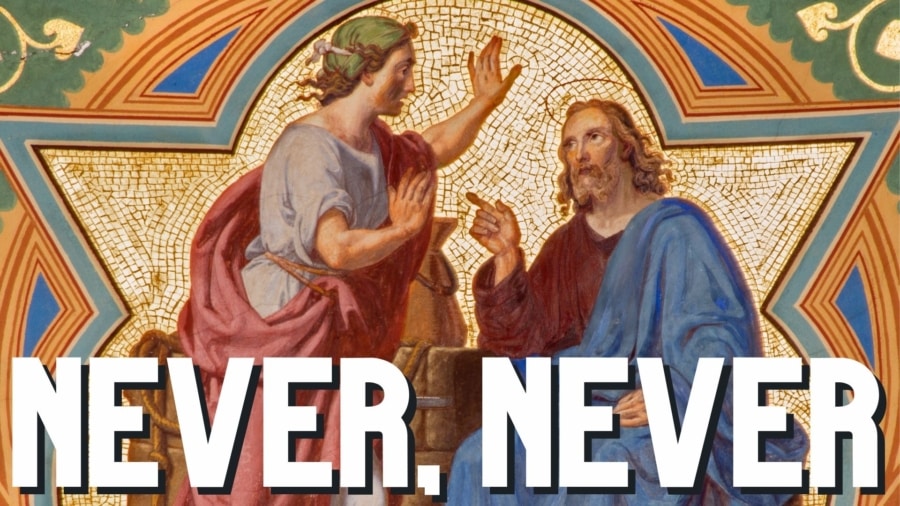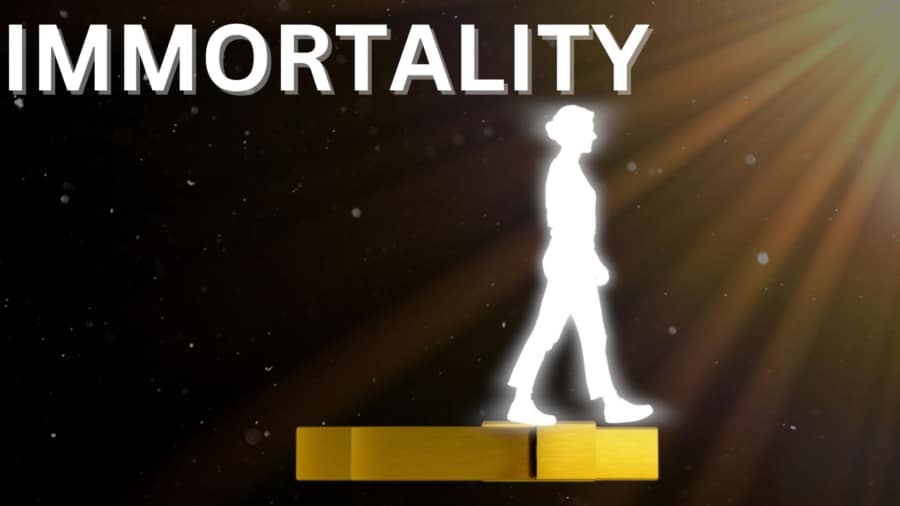The Confirmation of Prophecy
Christmas 2023
“Blessed us the Lord God of Israel, for He has visited and redeemed His people,
and has raised up a horn of salvation for us in the house of His servant David,
as He spoke by the mouth of His holy prophets, who have been since the world began …”
Luke 1:68–70
>>>Click here to open a printable version<<<<
Introduction
The words quoted above were spoken by Zacharias, the father of John the Baptist—the first words out of his mouth after he had been mute for nine months, due to his doubt about Gabriel’s announcement (Luke 1:18–20). The significance of his first words rests in the fact that he relates the incarnation of the Lord Jesus Christ to many prophetic utterances.
People often ask how we can know that the Bible is the inspired Word of God. My answer is always the same, “Look at the record of the prophets.” It is reasonably certain that at least 25% of our Bible is made up of prophecy, while some suggest as much as 60% or more. There are many passages that have prophetic shadows and implications that are not specifically considered prophecies. Let’s take the words of Zacharias as a challenge to reflect on just a few of the prophecies concerning the coming and incarnation of the Lord Jesus Christ.
Gene Cunningham - July 11, 2022
This and That
More From "The Simplicity of the Gospel"
Powered by Series Engine
Note
It is especially rewarding to highlight some of the subtle implications in each passage:
- The Woman’s Seed—Genesis 3:15
“And I will put enmity between you and the woman and between
your seed and her Seed; He shall bruise your head, and you shall
bruise His heel.”
Implications
- The phrase “seed of the woman” anticipates a virgin birth, since the “seed” comes from the man. In Jesus’ case, that seed was implanted by the Holy Spirit (Luke 1:35).
- The “enmity” anticipates the invisible war—the angelic conflict—raging behind the scenes of history (Rev.12:1-11).
- The “bruised heel” speaks of the crucifixion of Christ, but the “bruised head” is the total destruction of the devil and his works (1 John 3:8).
- The Tribe of Judah—Genesis 49:10
“The scepter shall not depart from Judah, nor a lawgiver from
between his feet, until Shiloh comes; and to Him shall be the
obedience of the people.”
Implications
- The “scepter” refers to the kingly line, beginning with David, and culminating in the eternal reign of Jesus Christ.
- “Shiloh” has been related to several Hebrew words with various meanings, such as “He who is to come,” or “He who is rest,” and “He who receives tribute.” All are fitting for Jesus.
- The “obedience of the people” suggests Paul’s “obedience to the faith” (Rom. 1:5).
- Born of a Virgin—Isaiah 7:14 (Matt. 1:23)
“Behold, the virgin shall conceive and bear a Son, and shall call
His name Immanuel.”
Implications
- The word for “virgin” actually means “young woman.” This is because this prophecy of Isaiah has a double application, first to the child of Isaiah (Isa. 8:3–4), and then to Jesus Christ. However, in the Old Testament, the word can be used of a young virgin; this looks back to Genesis 3:15 and forward to Matthew 1:18–23.
- The name “Immanuel” means “God with us” (Matt. 1:23), indicating Jesus’ divine nature.
- Born in Bethlehem—Micah 5:2 (Matt. 5–6)
“But you, Bethlehem Ephrathah, though you are little
among the thousands of Judah, yet out of you shall
come forth to Me the One to be ruler in Israel,
Whose goings forth are from of old, from everlasting.”
Implications
- The specific place of Jesus’ birth is given here.
- Again, His divine eternal nature is declared.
- Messiah both God and Man—Isaiah 9:6
“For unto us a Child is born, unto us a Son is given; and the
government will be upon His shoulder. And His name will be
called Wonderful, Counselor, Mighty God, Everlasting Father,
Prince of peace.”
Implications
- The child is “born,” a reference to the virgin birth of Jesus’ humanity.
- The Son is “given,” for God the Father gave His Son as the only sacrifice that could take away the sins of the world (John 3:16; 1 John 2:2).
- His deity is seen in the titles given, each of them suggesting the glorious character of the Savior.
- Called a Nazarene—Matthew 2:23
“And he came and dwelt in a city called Nazareth, that it might
be fulfilled which was spoken by the prophets, ‘He shall be
called a Nazarene.’”
Implications
- This verse stumps many people, for there is no specific prophecy that speaks of Jesus as a Nazarene. The answer is found in the root word from which Nazarene comes. It is netzer, which means “the branch.”
- It was not a single prophecy, but the message of several of “the prophets” that relates to “the Branch,” i.e., “the Nazarene.” (Isa. 4:2; 11:1; Jer. 23:5; 33:15–16; Zec. 3:8; 6:12). Especially astounding is that in these prophecies there are direct parallels to how Jesus is presented in Matthew (Royalty), Mark (Servant), Luke (Humanity) and John (Deity).
- Crucified for Sinners—Isaiah 53:3–6; Zechariah 12:10
“He is despised and rejected by men, a Man of sorrows and
acquainted with grief … Surely He has borne our griefs and
carried our sorrows … He was wounded for our transgressions,
… the chastisement for our peace was upon Him, and by His
stripes we are healed … All we like sheep have gone astray …
And the Lord has laid on Him the iniquity of us all.”
“And I will pour on the house of David and on the inhabitants of
Jerusalem the Spirit of grace and supplication; then they will
look on Me whom they have pierced. Yes, they will mourn for
Him as one mourns for his only son, and grieve for Him as one
grieves for a firstborn.”
Implications
- The rejection of Jesus by His own people is seen here.
- His crucifixion is vividly portrayed as the penalty paid for our sins.
- His resurrection is anticipated as He will return to repentant and believing Israel.
- He Is Coming Again—Job 19:25–26
“For I know that my Redeemer, and He shall stand at last on
the earth; and after my skin is destroyed, this I know, that
in my flesh I shall see God.”
Implications
- The redemptive work of Christ on the cross is anticipated.
- His resurrection is implied, in that “He shall stand at last on the earth,” (or “at the last”).
- Job also anticipates his own resurrection, following his death and decay of the body, “in my flesh I shall see God.”
- When we consider that Job predated Abraham, and none of the Old Testament was yet written, this is an amazing prophecy from earliest times!
How astounding that the prophets of the Old Testament not only predicted the event of the birth of Jesus Christ, but the time, the place, and many other minor details. These are only eight out of over three hundred prophecies concerning Jesus’ first coming. Prophecy is not only the proof that the Bible is inspired, but it is also the proof of the existence of God, who alone is omniscient and omnipresent.
Let us reflect deeply on each of these prophecies and discover the sometimes-hidden implications in each of them. God, who was faithful to fulfill the prophecies of the past, will surely also fulfill those yet to come. Jesus Christ will yet return, first in the Rapture and then at His Second Coming to Earth. He will then execute judgment on the Earth, right all wrongs, heal all wounds, remove all diseases, restore the Earth to its pristine beauty, and establish His eternal glorious Kingdom. In this hope and assurance, let us all be blessed this Christ-mas time!
Missions Past, and Future Ministry
Many have heard me say this at the various conferences, but this has been the most demanding year of my ministry. We have taught at 15 camps and conferences around the country, taken four overseas Mission trips, and I have spent countless hours working on the Notes for the New Testament. We end this year weary in body and soul, but victorious in spirit—the way every race should end. A short video is attached which will show some of our overseas work.
This coming year is Nan and my 50th anniversary year. We plan on making up a small bit of the time we have sacrificed from children and grandchildren over the past several years. Our family has not all been together for over 13 years, and we hope to have a grand family reunion. We intend to use the year to recharge and rest a little more than usual.
This means we will not be attending quite so many conferences. I hope none of our hosts for the conferences that will be missed take this personally. I will still do a few conferences, and perhaps a couple of Mission trips. But we truly need some time for spiritual, mental, and physical refreshment.
Only God knows what the future holds, but I expect this next year to be quite turbulent! At the same time, I am praying for a mighty work of God in exposing the criminality and corruption in our land, and in bringing down a righteous judgment on those who prey on the American people.
May God bless you all as we celebrate the coming of our Savior into the world, and may we, each and every, one draw nearer, and ever nearer, to Him through the diligent study and faithful application of His Word to our lives.
WE WERE BORN FOR SUCH A TIME AS THIS!
In the blessings of His grace,
Gene and Nan




















